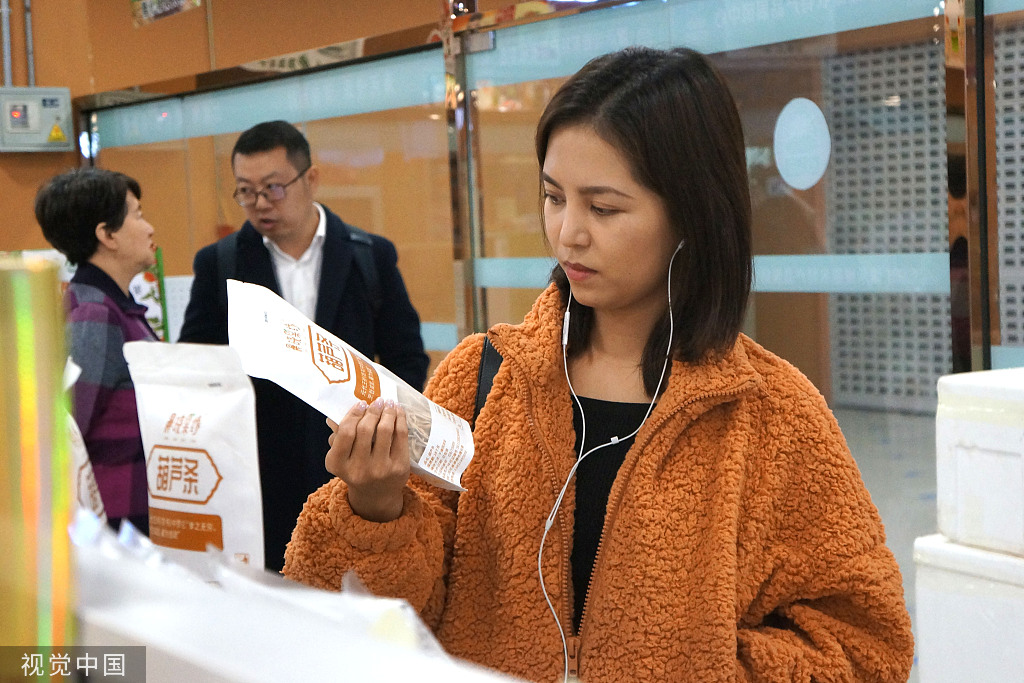Fast-moving consumer goods see 5.6% Q3 growth
By Wang Zhuoqiong | chinadaily.com.cn | Updated: 2019-10-18 13:21

The consumption is still strong in terms of the fast-moving consumer goods in the third quarter, reporting 5.6 percent growth in the third quarter year-on-year according to an industry report released on Oct 12.
Kantar Worldpanel, the global market leader in consumer panels, reports that the total spending of fast-moving consumer goods (FMCG) grew by 5.6 percent in the 12 weeks to Sept 6, compared to the same period last year.
Stronger growth in lower-tier cities, e-commerce channels and higher inflation driven by food remained the key drivers.
The real growth in FMCG is shadowed by downward pressure of the macroeconomy and lingering global trade uncertainties, according to the report.
The nonfood category continues to be the growth engine, with personal care products reporting strong growth of 12.4 percent in sales value, driven primarily by younger families and evolving lifestyles.
Packaged food saw a mixed performance but categories with health and well-being benefits continued to do well. Kantar Worldpanel also observed urban Chinese households spent 8.8 percent more on fresh food, especially fruit and pork respectively.
Modern trade (including hypermarkets, supermarkets and convenience stores) slowed down, posting a growth rate of 1.7 percent, although all four regions except western are seeing a stronger recovery momentum.
Hypermarkets continued to struggle during the third quarter, experiencing a drop in penetration versus the same period last year. E-commerce remained a bright spot with high-speed growth of 36.2 percent.
The report has found that local retailers have embraced the online-to-offline services to build extreme convenience in the shopping experience.
Sun Art Group maintained its leading position and stopped the decline in the third quarter. The retail group represented 8.3 percent of the FMCG value share of modern trade in the last 12 weeks and has been investing heavily in digitalization, which is starting to pay off.
Carrefour slowed down its decline to 5.3 percent this quarter. During the last quarter Suning announced the completion of its acquisition of Carrefour, and moved swiftly to consolidate its operation first by opening 200 In-Carrefour stores to sell home appliances and electronic products.
On Oct 11, German wholesaler Metro AG also agreed to sell a majority stake in its Chinese operation including 97 stores to local giant Wumart as well as its technology partner Dmall. The move will help Wumart further expand its presence at the national level and leverage Metro's excellent sourcing capabilities.
Despite severe pressure facing global retailers, US warehouse club operation Costco and German discounter Aldi remained cautiously bullish about their expansion in China.
The online channel experienced a 36 percent growth in sales, far outstripping other channels. A total of 58 percent Chinese shoppers bought FMCG online in the last 12 weeks with an average frequency of 4.6 times and average spending of 115 yuan per trip.
Alibaba maintained its leading edge with one-third of the China urban population making an FMCG purchase through an Alibaba platform.
It recently acquired cross-border e-commerce platform Kaola from NetEase for about $2 billion to further enhance its market position in imported products.
























